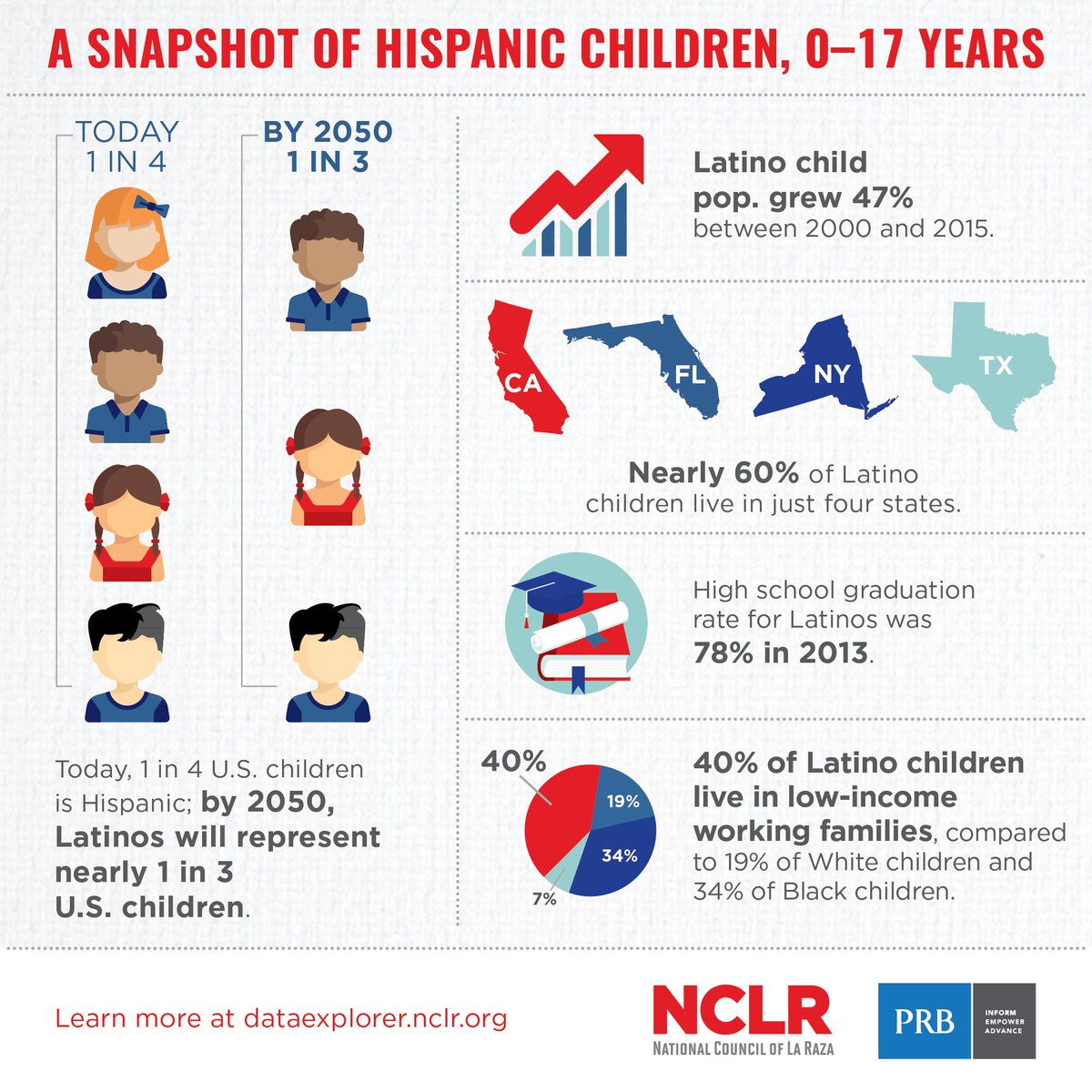TOWARD A MORE EQUITABLE FUTURE:
THE TRENDS AND CHALLENGES FACING AMERICA'S LATINO CHILDREN

This text is taken from the foreword of the NCLR report "Toward a More Equitable Future: The Trends and Challenges Facing America’s Latino Children."
Latino children have been central to the work of NCLR and our Affiliates for the past half century. We were early pioneers of programs in Migrant Head Start, insistent that schools be held accountable for ensuring quality education for all students, fierce advocates for children’s health coverage, and supporters of deferred action for undocumented childhood arrivals. Through all of this, NCLR has been at the forefront of national and state-level efforts to protect children and ensure that Hispanic youth have the same chance at a successful future as all other children.
Now, more than ever, our nation must maintain and enhance its investments in Latino children. As this report shows, the growth of the Hispanic child population in the United States over the past 15 years has been unprecedented, contributing significantly to increasing diversity in schools, across neighborhoods, within institutions, and, in the longer term, at the polls. In just one generation, nearly one in three children in the United States will be Latino. The report shows that inequities can be reduced with the right policies and programs, and that we are headed in the right direction in a number of instances. Indeed, the positive trends reported here occurred as a result of targeted policies that have aimed to advance the well-being of children—whether that be improved health coverage, better schools and more accountability in our education system, or dismantling the school-to-prison pipeline. The report also shows that we have a long way to go to reduce remaining gaps and negative trends. Problems such as generational poverty, discrimination, bigotry and demonization, and other factors impede the positive development of young children of color and can potentially have a detrimental impact on the overall integration of Latino communities. We can and must do better.
The data in the report help us see where we have been and where we are going. NCLR knows what a tremendous asset Latino kids are for America, how resilient they are and what strengths they and their families have when given the chance. From the Hispanic toddler who learned important developmental and language skills through Head Start to the DACA recipient who was able to fulfill her dream of going to college and find a great job—we know that given the right support, our nation’s Hispanic children can be central players in our nation’s future workforce and society. We urge our readers to use the information provided here to join us in building a more equitable future for all American children.Toward A More Equitable Future: The Trends and Challenges Facing America's Latino Children:
RELATED
- Download the full report
- Use the new NCLR Latino Kids Data Explorer tool
